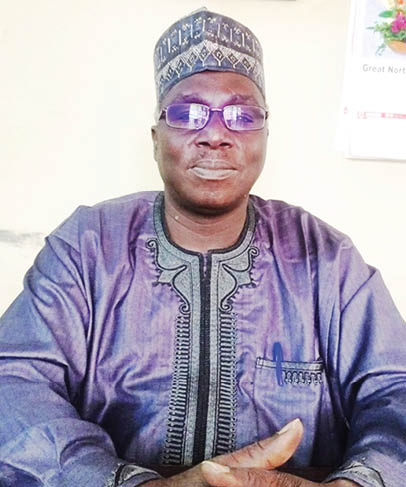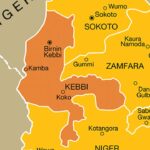Dr Ijantiku Ignatius Angarawai is a senior scientist and seed breeder at the International Crops Research Institute for the Semi-Arid Tropics (ICRISAT) in Nigeria. He is currently serving as the institute’s country representative in Nigeria. The ICRISAT has the global mandate for genetic improvement of sorghum, millet, groundnut, among other crops. In this interview, he talked about bio-fortification, measures to address climate change and other issues.
The Nigerian Meteorological Agency (NiMet) issued flood warning recently; as an agricultural researcher, what are you doing to assist farmers in this regard?
We studied dry land and discovered that the issue of climate change should be taken seriously. It is believed to be an agent that brought the flood experienced last year. There have also been reports of possible reoccurrence of flooding this year.
One may wonder that in a place that is dry, flood is affecting the population when our work has been on how to develop early yielding seed varieties in respect to the rain pattern to enable farmers effectively utilise the available rainfall.
We are also looking at drought-tolerant varieties, as well as pest and disease management. Unfortunately, we got flooded last year, which is an aspect of climate change. However, we have trained farmers on the possible climate change and the need to adopt a variety that can endure or resist flooding.
How I’m making brisk business from garlic – 17-yr-old trader
At FAO’s meeting, experts deliberate on sustainable fisheries mgt, others
What are your new discoveries after last year’s flooding?
We discovered some of the most devastating areas in Jigawa State, especially Taura Local Government Area. I personally supervised some of the findings there and we found out that the area had adopted a sorghum variety, Samsorg45, popularly known as Deko. This variety is actually early yielding. And we discovered that the flooding came when it was about heading, but the crop survived it and the farmers that have adopted the variety were able to get something, while others that have used a different variety couldn’t get anything.
We have also developed flood escape materials that can be harvested even before the flood despite the fact that during last year’s flooding a lot of crops couldn’t survive the water because of different issues attributed to the water as it was discovered that there was a lot of chemical content in the water that are harmful to the crops.
Can you tell us some of the newly introduced technologies the institute has adopted?
We are looking at which type of variety will suit the type of environment in question, which we termed as ‘Target production environment.’ That is, we will look at which ones are suitable for flood liable places, which ones are suitable for dry areas and which ones are suitable for Padama. This is to ensure that even when there is a disaster such as flooding, the farmer will still have something to fall back on.
As an expert, what would you advise farmers to do?
You see, there is a need for a strong and viable information dissemination strategy that will involve all stakeholders in agricultural production. It is unfortunate that not all farmers or agricultural practitioners are aware of the importance of NiMet and other relevant agencies, and as such, earlier warnings are given, yet the farmers will still be the most affected victims because they lack awareness of the importance of the information given by the agency.
Actually, there is a need for research institutes, NiMet and farmers to have an effective and viable synergy that would allow for effective utilisation of information, as well as easy adoption of new innovations and technologies introduced.
What are the outcomes of your recent research?
As a research institution we have all sorts of sorghum, millet, cowpea, among other varieties in the market. The problem we are having is lack of knowledge of how nutritious are these crops to the body system as a means of addressing the issue of what is termed as ‘hidden hunger’ that has been affecting people across the globe, which poses as a serious health challenge.
We were faced with the question of how these varieties develop crops and give us a formulation that can impact on people’s feeding habits in terms of nutrition and their health. We are now looking beyond earnings but also looking at being healthy as they eat the food they produced.
We have come up with a proportion of various crops that can give a better diet using a bio-fortification that is healthier for human consumption. We have gone round to test run the acceptability and out of it we have come up with some different combinations which we have introduced to some processors to capitalise on as a means of earning when production is expanded.
What is ICRISAT doing on this new finding?
After completing all the scientific requirements we have introduced and displayed the combination to some processors to see how they can take advantage of it and improve upon it by expanding production. It is apparent that happenings across the globe have shown that there is a need for us to develop food that is accessible and affordable internally. The institute had collaborated with University of Readings, United Kingdom (UK) to get these products evaluated across seven states in the country.
How would you rate the level of adoption of new technologies in the country?
To be honest with you, we need strong policies to back up farming practices in the country to be able to do the needful in the agricultural sector. However, it is unfortunate that we are experiencing what we are experiencing. We had a survey which we presented to the minister two years ago about our technology adoption. In that survey, we found out that groundnut had reached about 20 per cent, millet about 10 per cent, Sorghum about 18 per cent and the rest in terms of adoption. Now, in a real agricultural system where farmers depend on this as stables, it is too low.
Probably, it is because people do not have experience on the diversity of these crops, and what we need is a serious advocacy on the health and economic benefit of these compositions, as well as an effective awareness campaign that will make the farmers wholeheartedly accept these technologies.

 Join Daily Trust WhatsApp Community For Quick Access To News and Happenings Around You.
Join Daily Trust WhatsApp Community For Quick Access To News and Happenings Around You.


